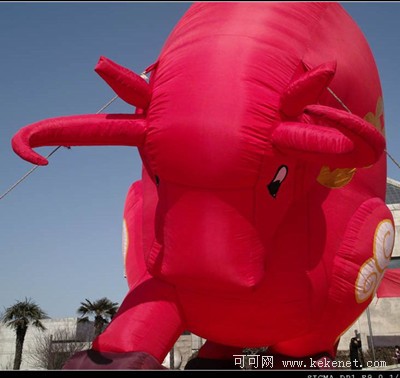The English We Speak是英國BBC電臺的一檔為英語學習者量身打造的英語學習節目。
今天,兩位主持人為我們帶來了一檔“音樂特輯”,節目中會講到一種樂器及與其相關的一個習語,讓我跟隨錄音去學習一下吧。
William: Hello and welcome to The English We Speak. My name is William Kremer.
Helen: And I'm Helen.
William: I've got something for you, Helen.
Burst of loud classical music (Beethoven's '5th Symphony')
Helen: It's nice to have a bit of music William, but why...
Burst of different classical music (Mendelssohn's 'Dance of the Clowns')
William: What do you think... nice music, huh?
Helen: Well, it's certainly dramatic! So are we having a special musical edition today, William?
William: Well, yes we are Helen. The BBC Proms start this Friday, remember?
Helen: Ah, of course. The BBC Proms is a huge classical music festival that the BBC sponsors. It's over 100 years old.
William: Yes and every day for the next two months hundreds of music fans will queue to get their hands on a £5 ticket.
Helen: Wow. Are you going to go?
William: No, I hate queuing! But anyway, I thought we could have a music-themed programme. And our phrase this week relates to one instrument in particular...
Trumpet music solo
Helen: The trumpet?
William: Yes, do you know what it means to say someone 'blows his own trumpet'?
Helen: Yes. It means that someone is talking too much about his achievements, right?
William: Exactly. Let's listen to an example.
例1:
Woman: Who's going to be there tonight?
Man: I think Angela and Mark and that guy Martin...
Woman: Oh, no, not Martin! He's such a bore. He's always blowing his own trumpet. Last time I saw him he went on and on about how he had been promoted twice in six weeks.
Helen: So this is quite a negative phrase then?
William: Yes, sometimes. But interestingly, it isn't always used in a negative way. Listen to this example. A woman is talking to her niece.
例2:
Woman: I didn't know you'd come top in the class again! Why didn't you tell me? You really must start blowing your own trumpet a bit more!
Helen: So in that clip, the woman was telling her niece she ought to blow her own trumpet more?
William: Yes. And English people sometimes use this phrase because they are embarrassed to talk about their achievements. Listen to this clip:
例3:
Man: How's it going at your work nowadays?
Woman: Well, at the risk of blowing my own trumpet, it's going very well. In fact, I've just won an award!
Helen: She said "At the risk of blowing my own trumpet".
William: Yeah, so that's like saying "Excuse me while I talk about my achievements"!
Helen: Well, I wonder whether we should blow our own trumpet a bit more. I mean here we are with a really popular website, bbclearningenglish.com...
William: ...yeah, making lots of little programmes that are entertaining, fascinating, useful...
Helen: …and best of all, it's all free! Brilliant, huh?
William: Yeah, that's brilliant! But maybe we should stop blowing our own trumpet now! Shall we have some more of that nice music again to finish off?
Helen: Oh, yes! Bye!
William: Bye!
賞析:
此期節目,兩位主持人討論了習語“blow one’s own trumpet” 的含義和用法。
Trumpet本意“小號”,“blow one's own trumpet”本意為“總是自己吹自己的小號”,也就引申為:“總是吹噓自己的成就”的意思,多數情況下,如果被別人這樣評價,都帶有一定貶義,如文中例1.
但是,這個習語也有別的用法,如例2,當被別人當面用:“You really must start blowing your own trumpet a bit more!”評價的時候,則意味著你過分謙虛了,完全可以多說一些自己的成就,好讓別人更好地了解你。
例3中所用的習語是“at the risk of blowing my own trumpet”,這是謙詞,常用在自己需要介紹自己的成就之前,可以翻譯成“請允許我說一下自己所取得的成績”,用上這句話之后,風度馬上顯現了出來。
英國同中國一樣,是禮儀之邦,謙虛是傳統美德。同樣的一個事實,從別人口中得到可能是贊許與夸獎,如果自己說出來就有可能是吹噓與驕傲了。做人處事當注重場合身份,為了做一個與大家相處融洽的人,少說幾句一般沒有壞處。當然,也不要對自己取得的成績惜字如金,畢竟,孔老夫子教導過,“過猶不及”。
注釋及其他語言點:
It's certainly dramatic! 那一定棒極了! dramatic:令人激動的;戲劇性的。
queue to: 涌入 queue:排隊
He's such a bore.: 他討厭極了。/他是個令人討厭的人。












